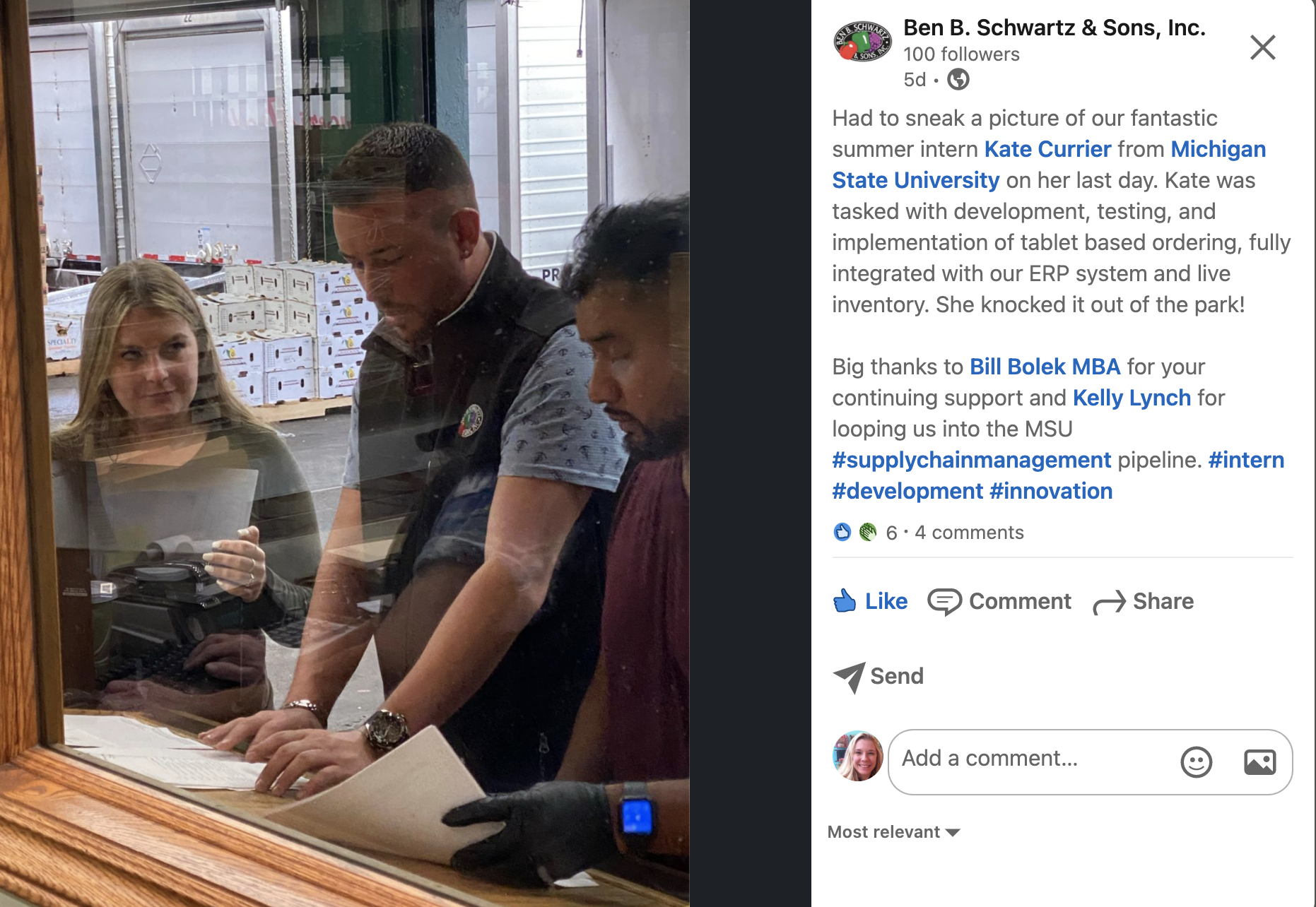Michigan produce wholesalers roll with it

“It feels like the foodservice business is close to back to normal. Maybe not 100%, but by leaps and bounds,” said Jim Bommarito, president of R.A.M. Produce Distributors LLC, at the Detroit Produce Terminal.
By the end of August, R.A.M.’s sales were up for a many stock-keeping units of smaller, fancier specialty produce favored by restaurants, such as petite romaine and artisan lettuces.
The company ships regionally, throughout Michigan, Ohio and a little bit of Canada. Pre-pandemic, R.A.M.’s customer ratio was about 50/50 retail and foodservice, shifting to 80/20 during the initial worst period of COVID-19 infections. Now, it’s evened out mostly, Bommarito said. To survive the worst, they sold more retail-centric items. “That’s where the business was,” he said.
Read related: Foodservice faces slow recovery
The company has shifted ranks since Bommarito’s father, Michael Bommarito, 65, a founder, CEO and president, passed away this summer.
The elder Bommarito had been in the produce business since he was 14 years old.
“He was doing my grandfather’s route and driving a semi since he was 16,” Jim Bommarito said.
That business is still booming with all its challenges of customers demanding cheaper prices, labor shortages and freight price hikes.
“I don’t see that coming down anytime soon, with the price of fuel going up,” he said.
Read related: What’s happening in Boston and beyond
Main commodity items are priced lower to make up for the freight rate increases. Demand has been pretty steady and freight-on-board prices haven’t really been affected, Bommarito said.
The biggest impact on pricing this year has been high inbound freight costs, said Dominic Riggio of Riggio Distribution Co., also based at the Detroit Produce Terminal.
As a fresh produce wholesaler, the company is always changing, updating and adapting.
“New challenges are the norm in our industry,” Riggio said. “Obviously, the past year has been full of new challenges, we make adjustments and keep moving.”
His company has customers in retail, foodservice and food manufacturing.
“Our business changes from year to year depending on opportunities and the natural flow of business,” Riggio said.
To adapt to today’s dependence on the internet, Ben B. Schwartz & Sons Inc., Detroit, hired a firm to develop its futuristic, interactive website that stands out in the industry for its innovative style and way of navigation.
Also based at the Detroit Produce Terminal, the company sources produce from more than 300 growers, distributing more than 12 million pounds annually. In the past year, Ben B. Schwartz & Sons acquired more space at the terminal and added Kiss melons, jumbo blueberries and several more grape varieties to its product lineup.

At this company also, the sons, Drew and Jake Billmeyer, have recently taken the ownership reigns from their father, Chris Billmeyer.
And in this day and age, delivery matters more than ever, as fewer customers take the time to visit the terminal markets in person.
Adding several new tractor trailers to its fleet, the company drives 6.3 million miles to deliver more than 32,000 customer orders a year.
Distribution reaches as far south as Georgia and Texas, as far east as Virginia and New Hampshire, as far west as Iowa and Wisconsin.
And Ben B. Schwartz & Sons used a summer internship program in order to advance its technology and processes.
Kate Currier, supply chain management student at Michigan State University, was tasked with developing, testing and implementing tablet-based ordering. She made it fully integrated with the company’s Enterprise Resource Planning (ERP) system and live inventory.

ERP is a type of software companies use to manage daily business such as accounting, procurement, inventory, project management, risk compliance and supply chain operations.
Ben. B. Schwartz & Sons has a diverse range of customers, and lately it’s been about 70% retail and 30% foodservice, said Bill Loupée, chief operating officer.
“As waves of the pandemic have impacted the Midwest region, we experienced unexpected shifts in demand outside of the normal seasonal cycle between the two sales verticals. This was first driven by panic buying at the retail level and later on, by state enforced restrictions on dining capacity,” Loupée said. “We saw fewer buyers physically coming down to the terminal and doing more orders either over the phone or online.”
Demand in the Michigan region continues to be strong, especially with a lot of local, independent retailers and enough market share for retailers at both the national and local levels to thrive. The increased demand for home delivery and organic products has continued too, he said.
Read related: Philadelphia feeds more, delivers more, wastes less
The primary challenge has been complying with the mandates and recommendations of the Centers for Disease Control and Prevention and the Michigan Occupational Safety and Health Administration, while still serving customers at the highest levels, he said.
Michigan’s produce companies are shifting with the times, whether that means different items, different customers, different services, different technology. And all the while, these produce leaders are rolling with the punches delivered by the pandemic and economy.
“You always have in the back of your mind, ‘Is it all going to get shut down again, if the delta variant spirals out of control here?’ You don’t know. It’s happened twice before in the last year and half,” Bommarito said. “How that affects business, no one knows. Nobody saw any of this coming and knew how to react to it. Now that we see what can happen, hopefully we can deal with it a little better if it happens again.”
Bommarito remains aware of the possibilities of an unfavorable fall and winter 2021 while maintaining optimism and gratitude for what his team has accomplished so far.
“We’re going to continue doing what we’re doing because it’s going well, and we’re happy with the direction we’re going.”







